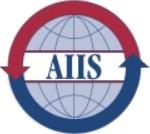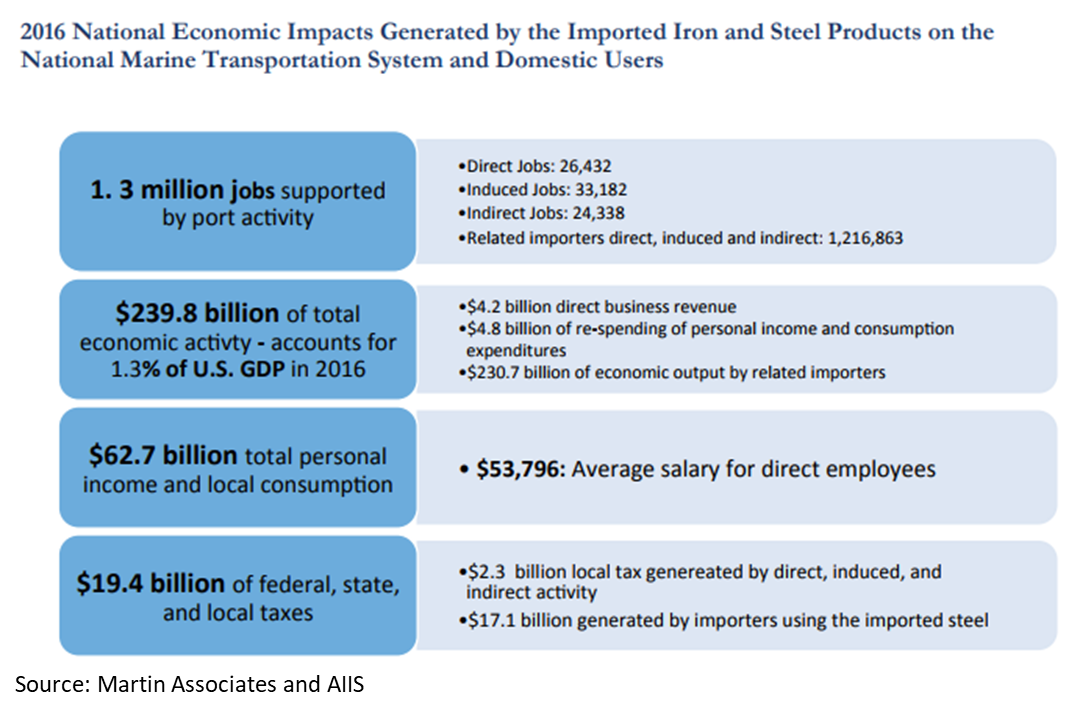Government/Policy

September 16, 2017
AIIS Panel Warns Against Section 232
Written by Sandy Williams
“Dangerous, unintended consequences” could result from the Section 232 national security investigation of steel imports, said members of a panel hosted by the American Institute for International Steel, which represents foreign steel producers.
“Our objective today is twofold,” said John Foster, AIIS chairman and president of Kurt Orban Partners, in his opening remarks, “First, to highlight the critical importance of the steel supply chain to our ports, the U.S. marine transportation system, and to the entire American economy; and second, to present compelling new evidence pointing to the potential economic disaster that may befall the steel supply chain, and other sectors of the American economy, like agriculture, if the administration imposes Section 232 trade restrictions on imported iron and steel products.
A report compiled by Martin and Associates analyzed the economic impacts of imported iron and steel products on the national marine transportation system and domestic users. The analysts found that 34.4 million short tons of iron and steel handled at U.S. seaports last year supported 1.3 million jobs, and nearly $240 billion of total economic activity, or 1.3 percent of total U.S. GDP last year.
The vessels that import steel to American shores are used in turn to export grain from the U.S. to overseas destinations. About 47 million tons of grain were exported via the lower Mississippi River in 2016, generating 10,830 direct, induced and indirect jobs and supporting 39,000 jobs in the agricultural industry.
“If restrictions are imposed on the imported iron and steel products, not only will the 1.3 million jobs be at risk, but the ocean cost to export grain from the U.S., particularly from the Lower Mississippi River, will increase due to the restricted number of vessels that will be available to carry grain exports,” explained John Martin of Martin Associates. “This in turn will have a ripple effect into the nation’s agricultural sector.”
Representatives of the National Chicken Council and the American Soybean Association expressed concerns about shipping disruptions and trade retaliation. Kevin Brosch, attorney for the National Chicken Council, noted the retaliatory duty on chickens imposed by China after the Obama administration placed a 35 percent tariffs on tires in 2009. Brosch added that the poultry industry has yet to recover from that incident.
Foster challenged the notion of “adding more government-mandated protections for what is already the most protected industry in the country.” To do so, he said, “is not a constructive or logical approach.”
Foster went on to note that:
1. Many of the mills that blame imports for their downfall went bankrupt because pension and health care obligations were poorly managed;
2. More than half of the AD/CVD orders on the books today involve steel and have been in place for some time;
3. The steel industry is profitable, with five of the six largest companies returning total profits of $654.6 million in first-quarter 2017.
“All of this is compelling evidence for why the Section 232 national security investigation of steel imports should be immediately terminated,” said Foster.








